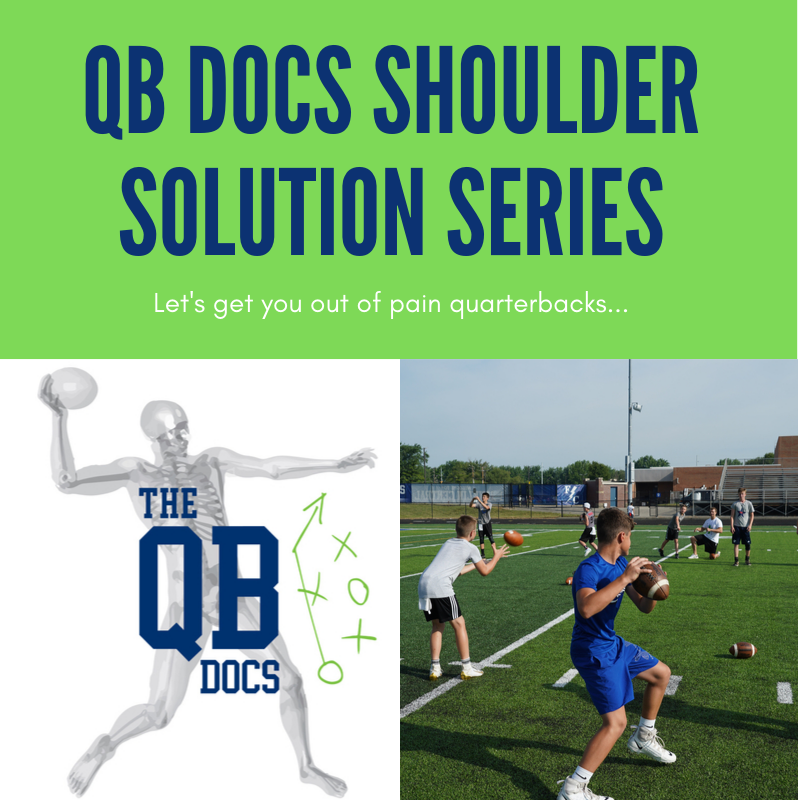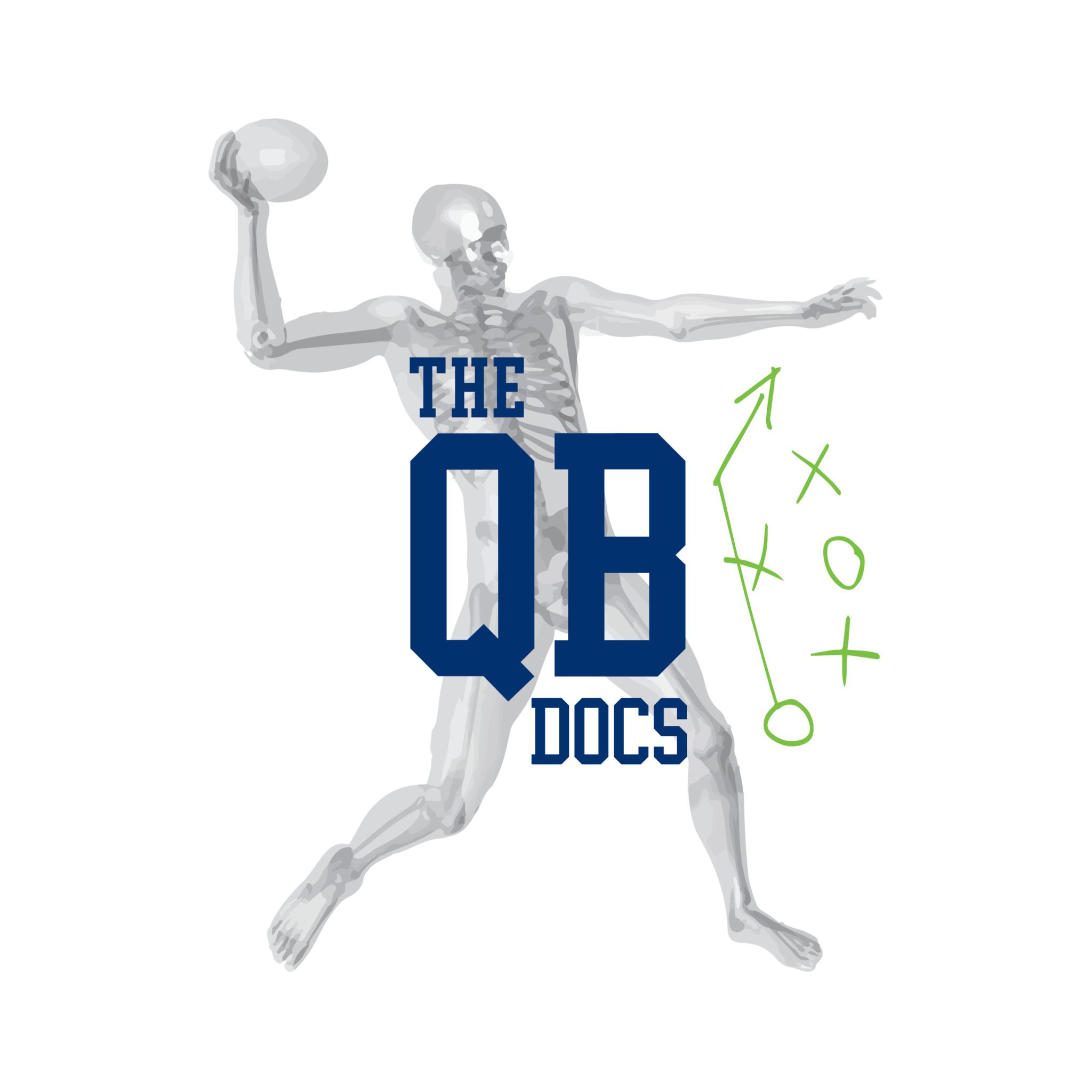In spirit of our online course “The QB Docs Shoulder Solution Series” dropping this past week, we wanted to cover another aspect of preventing shoulder pain for you guys. The shoulder is a very complex set of joints that depends on other areas of the body to do their jobs so it can do it’s job. If this doesn’t happen the efficiency of the shoulder while it is being used won’t be there and there will be a lot of wear and tear injuries that happen over time. Today, we are asking y’all three questions that you should be asking yourselves to help decrease risk of shoulder pain and inefficiency of the shoulder. (Also, if you haven’t accessed the course to decrease shoulder pain, you need to right now. Link is below!)
https://qbdocs.clickfunnels.com/course-sales-pageaflmkwyq

Question #1: Do I have proper thoracic extension?
Every time I see someone with shoulder pain, I always go back and look at their ability to truly extend through the mid part of the spine. When players don’t have this capability, their inability to bring their back upright and shoulders back, automatically puts the shoulder in a terrible position to move from. This is especially true with overhead athletes performing high velocity movements. The pictures below depict where the thoracic spine is and how it can affect the shoulder.
The big issue here is that if the spine isn’t moving, then the scapula (shoulder blade) probably isn’t moving like it should either. The shoulder blade is very big with the very outside portion of it hooking around and making up the shoulder bone. (acromion) If that shoulder bone is tipped forward while the thoracic spine isn’t moving, then the tendons of the rotator cuff are going to be sheered over and over. We have provided an in depth video of what this is and how to fix it below.
Question #2: How good is your trunk stability?
If there’s one thing that we teach all the athletes that we work with, it’s how to PROPERLY stabilize the trunk during movements in the weight room and on the field. The idea of trunk stability can be a complex one, but let’s keep it simple for this blog post. Most of the guys that we see present with a ribs flared position with the pelvis tilted forward. I have provided a picture below so you can see what I mean. This is bad news for the throwing athlete. Quarterbacks can only be as good as their weakest link. This is also a big deal when the weakest link is at the most central aspect of the body. This is the same idea as building a 40 story building on an unstable foundation. It’s just not going to work as well. This is also true for the shoulder in relation to the trunk. When there is instability, the shoulder is asked to work harder to try and produce the same amount of force. Without trunk stability, you can’t produce force through the hips. Without force through the hips, there is decreased output usually seen with throwing the ball with less velocity. With less velocity, other areas of the body try to work on overtime to increase velocity to where it should be. After high volumes of throws, the body breaks down. We see this happen ALL the time. We have given a video below to work on trunk stability.
Question #3: Are you throwing too much?
Did you know that there is such thing as throwing too much? There’s no athlete out there that should be throwing a ball all year around. This is even true for college or pro athletes out there that play QB for their one position that they focus on. THERE HAS TO BE A PERIOD OF TIME IN WHICH YOU ARE NOT THROWING. Step away from the game for a little bit. This doesn’t mean be completely lazy and not do anything, but this does mean to not throw. Lift weights, play pick up basketball, play spike ball, play soccer. This is important for the body, but also important for the mind. When athletes get stuck in this idea of having to practice ALL the time to perfect the skill, the game becomes a job very quickly. The longer that athletes can stay away from this concept, the better. Take 1.5 to 2 months after your season to where you are not even picking up a football.
These questions are so important when it comes to the health of the shoulder. This should matter to y’all a lot because overall health of the shoulder is what is going to keep you on or off the field. Shoulder pain is the worst. My brothers and I have all been there. Take care of it! It’s in your hands. Once again, if you haven’t gotten our course on shoulder pain yet, go check it out! It will be a game changer for you. Hope this helps and have a good day.
Best,
-Drew Kiel PT, DPT, CSCS
